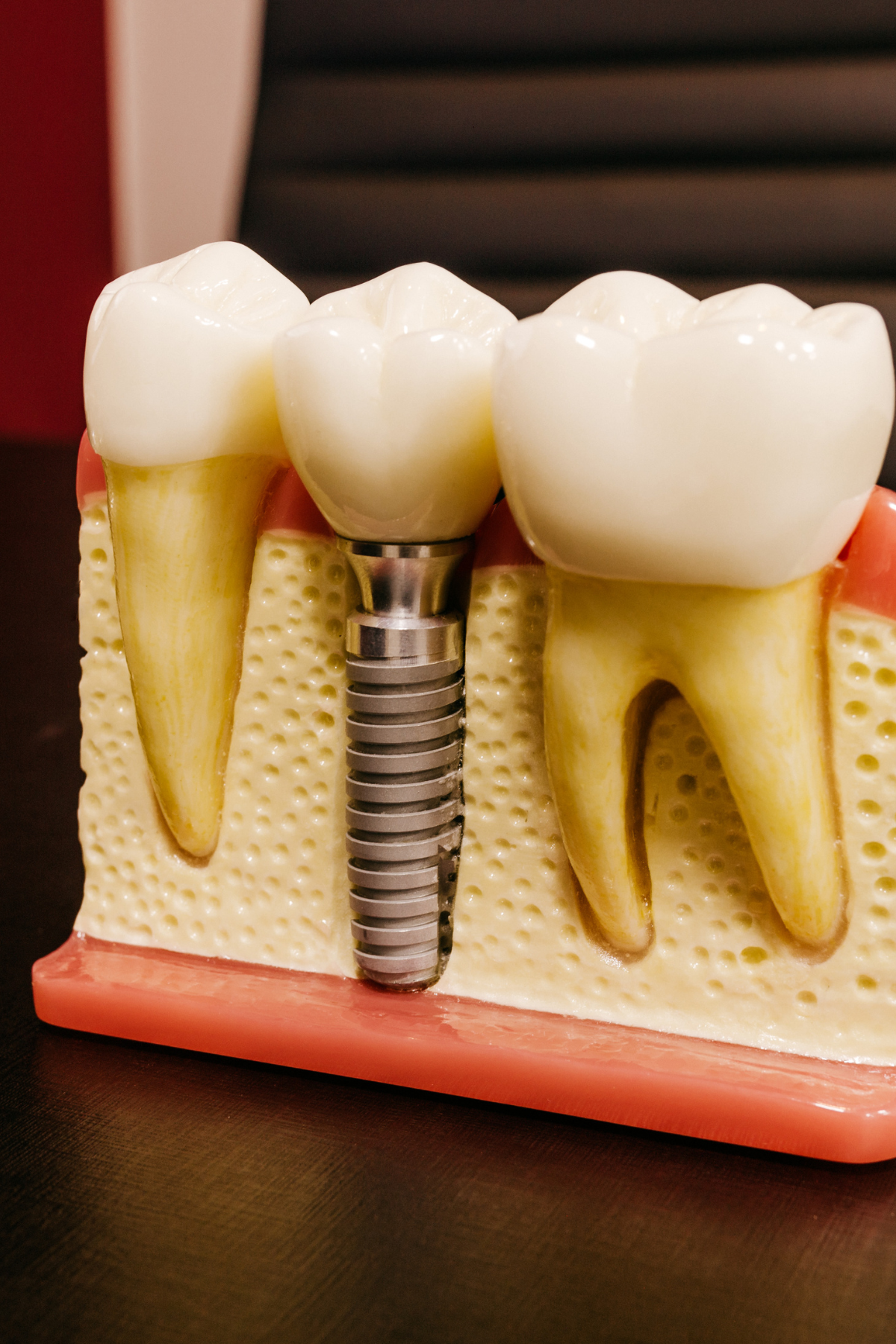1930 E. Rosemeade Pkwy #103 Carrollton, TX 75007


We know that getting dental implants can be a serious investment, both financially and emotionally. If you’re like us, you’ve probably invested in the 24-karat gold standard of smiles – dental implants Carrollton.
But let’s face it, even the most rugged titanium needs a little TLC to stay in top-notch shape. So, it’s important to take proper care of your dental implants to make sure they last as long as possible. But don’t worry, we won’t bore you with a bunch of technical jargon and complicated instructions. Instead, we’ll provide you with some professional tips and tricks for the same.
Don’t Let Your Implants Get Fooled: essential maintenance for lasting success
Dental implants are a popular yet effective choice for replacing missing teeth, offering a permanent and natural-looking alternative to dentures or bridges. However, in order to ensure its long-term success and durability, proper maintenance and care area must.
By following a few simple steps and incorporating good oral hygiene practices, you can maintain the longevity of your dental implants for years. In this comprehensive guide, we will guide you through some expert recommendations for maintaining your dental implants and maximizing their lifespan.
1. Practice good oral hygiene
Good oral hygiene isn’t just a suggestion – it’s the lifeline for your dental implants Carrollton. Maintaining good oral hygiene is essential for the long-term success of your dental implants. Just like natural teeth, dental implants can accumulate plaque and bacteria if not properly cared for. From brushing techniques to flossing finesse, learn the hacks of oral care and safeguard its durability.
- Make sure to brush your teeth at least twice a day and floss daily to remove food particles and plaque from around the implant.
- Using an antimicrobial mouthwash can also help to reduce bacteria in the mouth.
2. Visit your dentist regularly
Regular dental check-ups aren’t just for fun – they’re your implants’ best friends! By scheduling routine visits for your dental implants in Carrollton, you make sure of their permanent stay. From professional cleanings to proactive monitoring, these appointments are key to catching any issues early, monitoring the health of your implantations, and keeping them in top-notch condition for the long haul.
- Your dentist will examine your implants and check for any signs of infection or other issues.
- They may also recommend professional cleanings to remove any plaque or tartar buildup that cannot be removed with regular brushing and flossing.
3. Avoid smoking
Stub out that cigarette and protect your dental implants! Smoking can seriously compromise the longevity and success of your implants by inhibiting proper healing and increasing the risk of complications. If you are a smoker, it is recommended to quit smoking to improve the long-term success of your dental implants.
- Smoking can reduce blood flow to the gums, which can slow down the healing process after implant surgery.
- It can also increase the risk of infection and implant failure.
4. Avoid chewing on hard foods
Dental implants are strong and durable, but they are not indestructible. Give your dental implants a break from the crunch! Chewing on hard foods can put unnecessary strain on your implants, potentially leading to damage or loosening over time. By avoiding hard foods and opting for softer alternatives, you can protect the integrity of your implants and prolong their success in durability.
- Ice, Nuts, and Candies: Chewing on hard foods such as ice, nuts, or hard candies can put excessive pressure on the implants and may cause them to become loose or damaged.
- Popcorn kernels: While popcorn might be a popular snack, those pesky kernels lurking at the bottom of the bowl can wreak havoc on your dental implants. Chomping down on these hard kernels can put excessive pressure on your implants, increasing the risk of damage or dislodgement. To safeguard the longevity of your implants, it’s best to steer clear of these crunchy culprits.
- Tough meats (e.g., steak): Want to sink your teeth into a juicy steak? Not so fast! Tough meats require significant chewing force, which can strain your dental implants and potentially cause issues over time. To maintain the success and durability of your implants, consider opting for softer cuts of meat or cooking techniques that make them easier to chew.
- Raw vegetables like carrots and celery: While munching on raw veggies might seem like a healthy choice, it can spell trouble for your dental implants. Carrots and celery, in particular, are notorious for their crunchy texture, which can put undue stress on your implants. To keep your implants in top shape, consider steaming or cooking these vegetables to soften them up before enjoying them.
5. Be mindful of your diet
Your diet plays a crucial role in the longevity of your dental implants! By being mindful of what you eat, you can protect your implants from unnecessary strain and ensure their long-term success and durability. Opt for soft, nutritious foods that are gentle on your implants, and steer clear of hard or sticky items that could pose a risk. With a balanced diet tailored to support your oral health, you’ll set the stage for a lifetime of confident smiles with your implants.
- Avoiding sugary and acidic foods can help to prevent decay and infection around the implants.
- Eating a diet rich in fruits, vegetables, and lean proteins can help to support the overall health of your gums and teeth.
6. Stay hydrated
Drinking plenty of water is important for maintaining the health of your dental implants. Staying hydrated helps to keep your mouth moist and prevents dry mouth, which can increase the risk of infection and implant failure.
- Hydration is key for maintaining optimal oral health, including the health of your dental implants.
- Drinking plenty of water helps keep your mouth moist and aids in the natural cleansing of bacteria and food particles.
- Adequate hydration promotes saliva production, which is essential for washing away debris and maintaining a healthy oral environment.
- A dry mouth can increase the risk of implant complications, such as infection or gum disease, so staying hydrated is crucial.
- Aim to drink at least 8 glasses of water per day, and consider increasing your intake if you engage in activities that can cause dehydration, such as exercise or hot weather.
7. Be aware of any changes
If you notice any changes in the way your dental implants look or feel, it is important to contact your dentist right away. They can examine the implant and recommend the appropriate treatment to resolve any issues.
- Signs of infection, such as swelling, redness, or pain around the implant, should be addressed promptly to prevent further complications. Your dentist can examine the implant and recommend the appropriate treatment to resolve any issues.
- Pay attention to how your implants feel when biting or chewing, and take note of any unusual sensations.
- Be aware of any changes in the appearance or texture of the gum tissue surrounding your implants.
- Keep track of any changes in your overall oral health, including the occurrence of bad breath or persistent bleeding.
- Promptly report any concerns or changes to your dentist Carrollton or oral surgeon for evaluation and treatment, as early detection of issues can help prevent complications and ensure the long-term success of your implants.
Wear A Nightguard, To Safeguard Your Dental Implants
If you grind or clench your teeth at night, wearing a nightguard can help protect your dental implants. Grinding and clenching can put extra pressure on the implants and may cause them to become loose or damaged over time.
A custom-fitted nightguard provides a protective barrier, distributing the pressure evenly and shielding your implants from harm while you sleep. So, end goodbye to bedtime worries and welcome a peaceful slumber knowing your implants are well-protected.
In conclusion, dental implants are a durable and effective solution for replacing missing teeth. By Practicing good oral hygiene, visiting your dentist regularly, and avoiding smoking, you can significantly contribute to the long-term success of your dental implants.
Additionally, following the tips provided for maintaining dental implants, including wearing a nightguard if you grind your teeth, can further ensure their durability. If you have any concerns about your dental implants, be sure to consult with your dentist for personalized advice and recommendations.

